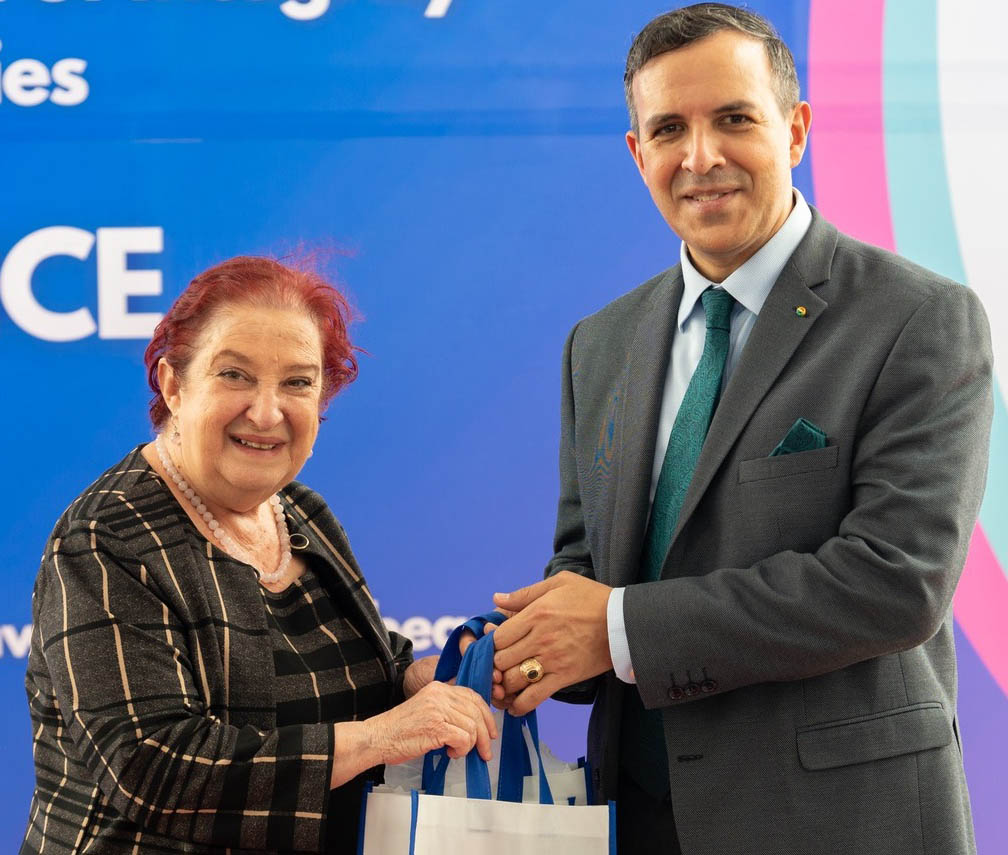Luis Franceschi, the Assistant General Secretary of the Commonwealth, urged member countries at the 9th annual conference of the Commonwealth Caribbean Association of Integrity Commissions and Anti-Corruption Bodies (CCAICACB) to embrace the findings of investigative journalism as they work to stamp out corrupt practices in their country.
He noted on Monday that in the era of social media, the work of investigative journalism has suffered as a result of media houses not being able to fund and pay for good investigative journalists to produce in-depth reporting.
“150 characters can destroy something that has been building for years. Twitter approaches are very abusive, very direct and very personalized. That is a huge challenge to us and we have to do better and think better,” he underscored as he urged the countries to consider the critical role investigative journalism plays in the fight against corruption.
CCAICACB’s Chairperson, Canon Mark Kendall, also made the call for countries to support the work of the media and investigative journalism. He said that in order to make headway in their fight they must seek to address the climate of fear that exists in reporting under the guidelines of whistle blowing and anti-bribery legislation.
Minister of Governance and Parliamentary Affairs, Gail Teixeira, in her support of whistle blowing and citizen reporting, agreed with Franceshi about the significance of investigative journalism in the fight against corruption.
“Of course, as you reported on the issue of investigative journalism. There are very good websites, blog sites that do serious work, and we have to be able to also develop our capacities in our countries,” she stated.
The PPP/C government has failed to establish the architecture for protected disclosures and has also been accused over the functioning of the office of the Commissioner of Information under the Access to Information legislation. It has also faced criticism that key watchdog bodies have been populated with persons close to the ruling party.
As he addressed the gathering, Franceschi noted that across the world US$3.6 trillion each year is lost to corruption according to the UN reports. He added that global proceeds from criminal activities are estimated to be between US$1 trillion and US$1.6 trillion annually while corrupt money associated with bribes received by public officials is estimated at US$20 to US$40 billion per year.
He underscored that the bribes paid to public officials are estimated to be three times the amount given for development of Africa as he noted the fight is a real pandemic.
However, he pointed out that while monitoring systems are focussed on the public sector, bribes also derive from the private sector, which is a huge challenge in the anti-corruption fight.
“The evil in the world government and private sector and civil society and all other institutions finds its way like water through the cracks and that’s why we have to seal all the cracks,” he stated.
According to the Assistant General Secretary, the CCAICACB must work with their non-Commonwealth brothers and sisters to encourage and support framework that will clamp down on corrupt practices.
“Every dollar lost to corruption is a dollar lost to a child’s education, health care, much needed infrastructure, electricity and water… when it is stolen, it is stealing money that would help us survive,” he emphasised.
In this regard, he urged the delegation to partner and work in the interest of sealing the gaps in society against corruption. Franceschi stressed that corruption must never set in as a form of life in this part of the world as it has happened in many countries.
He said that the Commonwealth is also supporting the development of a digital assets framework legislation for member countries. He made the point while noting that countries lack the legislation to clamp down on digital assets that were acquired and used in corruption schemes.
Franceschi noted that while some countries in the European Union have the framework, it is better to develop one’s own. The legal framework being developed he said, will be drafted considering the situation of every country.
The Assistant General Secretary urged the conference attendees to develop an agenda that will support institutional strengthening that will work for good governance. He also requested that each country, government and civil society find ways to establish a culture of integrity.
The Department of Public Information reported that the annual event brings together regulatory bodies, policymakers, heads of anti-corruption bodies, government officials, and development partners to assess national and regional anti-corruption efforts, and to facilitate interaction among members of the association. The Commonwealth Secretariat established the body in 2015.
The conference is sponsored by the Commonwealth Fund for Technical Cooperation (CFTC) and is hosted by a different delegate every year. It enables each country to get a fresh perspective on the impact of its anti-corruption legislation.



